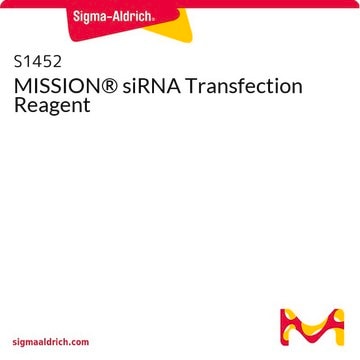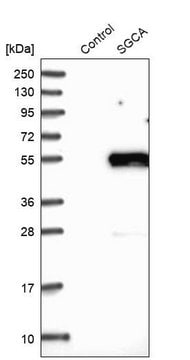EMU177361
MISSION® esiRNA
targeting mouse Arid1a
About This Item
Polecane produkty
opis
Powered by Eupheria Biotech
linia produktu
MISSION®
Postać
lyophilized powder
sekwencja docelowa esiRNA cDNA
TGGATCAGATGGGAAAGATGAGACCTCAGCCGTATGGTGGGACTAACCCATACTCGCAACAACAGGGACCTCCTTCAGGACCGCAACAAGGACATGGGTACCCAGGGCAGCCATATGGGTCCCAGACTCCACAGCGGTACCCCATGACCATGCAGGGCCGGGCTCAGAGTGCCATGGGCAGCCTCTCTTATGCACAGCAGATTCCACCTTATGGCCAGCAAGGCCCCAGTGCGTATGGCCAGCAGGGCCAGACTCCATACTATAACCAGCAAAGTCCTCATCCCCAGCAGCAGCCACCTTACGCCCAGCAACCACCATCCCAGACCCCTCATGCCCAG
Ensembl | numer dostępu dla gatunku mysz
numer dostępu NCBI
Warunki transportu
ambient
temp. przechowywania
−20°C
informacje o genach
mouse ... ARID1A(93760) , Arid1a(93760)
Powiązane kategorie
Opis ogólny
For additional details as well as to view all available esiRNA options, please visit SigmaAldrich.com/esiRNA.
Informacje prawne
Kod klasy składowania
10 - Combustible liquids
Temperatura zapłonu (°F)
Not applicable
Temperatura zapłonu (°C)
Not applicable
Certyfikaty analizy (CoA)
Poszukaj Certyfikaty analizy (CoA), wpisując numer partii/serii produktów. Numery serii i partii można znaleźć na etykiecie produktu po słowach „seria” lub „partia”.
Masz już ten produkt?
Dokumenty związane z niedawno zakupionymi produktami zostały zamieszczone w Bibliotece dokumentów.
Nasz zespół naukowców ma doświadczenie we wszystkich obszarach badań, w tym w naukach przyrodniczych, materiałoznawstwie, syntezie chemicznej, chromatografii, analityce i wielu innych dziedzinach.
Skontaktuj się z zespołem ds. pomocy technicznej








